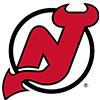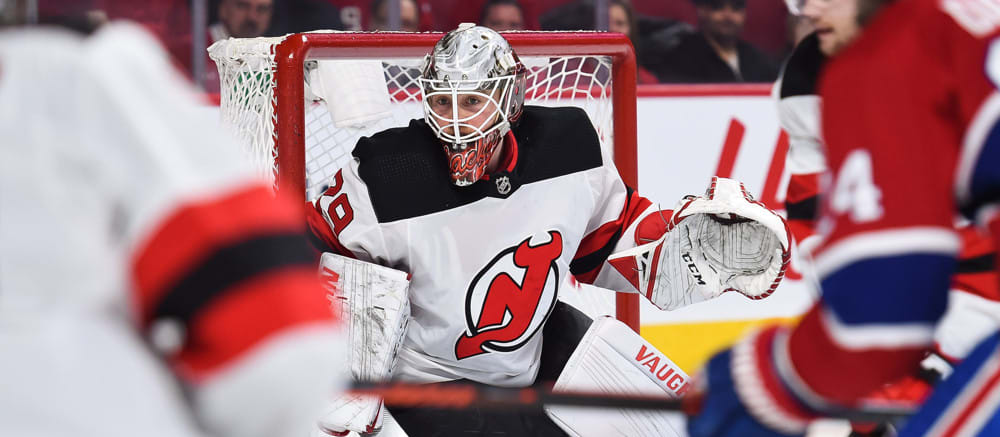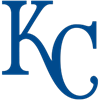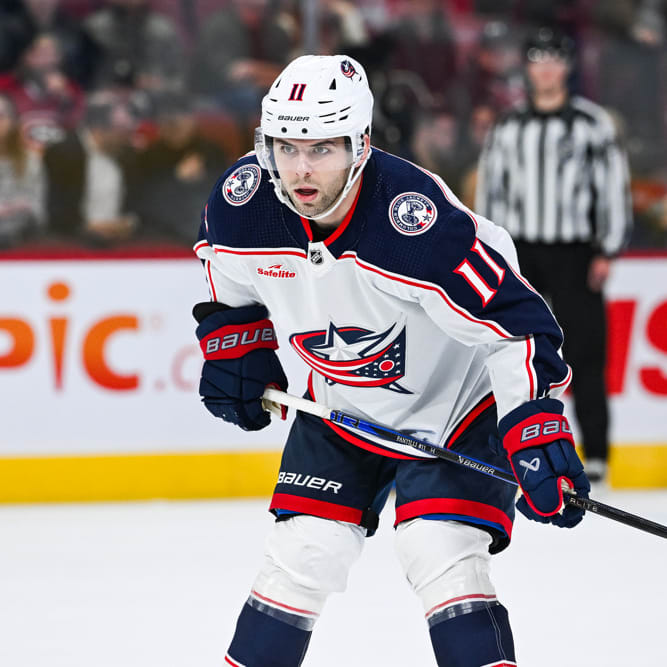While the current season remains on hiatus, there is no time like the present to start looking ahead to next year. Over the next several weeks, we'll take a look at the cap situation for all 31 NHL clubs, including restricted free agents, unrestricted free agents and even potential buyouts. Then, we'll play a little armchair General Manager by providing our recommendations for how we would approach the upcoming 2020-21 campaign if we were running the club.
In our most recent Twitter poll, the  New Jersey Devils came in with the second most votes and are up next.
New Jersey Devils came in with the second most votes and are up next.
2020-21 Cap Situation
The Devils currently have eight forwards, four defensemen and one goaltender under contract for next season at a price tag of $53,338,332, though the club is also on the hook for $1.7 million of Michael Cammalleri's buyout and $250,000 of Ilya Kovalchuk's recapture penalty. Assuming a flat cap of $81.5 million, this leaves the club with $26,245,001 in cap space and 10 spots under the 23-man roster to fill.
Restricted Free Agents
Joey Anderson ($925,000) John Hayden ($750,000) Jesper Bratt ($749,167) Mirco Mueller ($1.4 million) MacKenzie Blackwood ($697,500)
AJ Scholz: The Devils shouldn't have any issues getting Hayden and Anderson signed for their qualifying offers of $840,000 and $874,125, respectively. In each of his first three NHL seasons, Bratt has hit the 30-point mark despite having reached the 70-game threshold just once. If he could play a full 82-game season, the 21-year-old is certainly capable of pushing for 40 points. In July of 2018, Jared McCann signed a two-year, $2.5 million contract which is likely a fair starting point for Bratt. Given the amount of cap space New Jersey has, it could consider locking him up to a longer-term, five-year deal worth $3 million AAV -- which would also see him making more than Miles Wood and Pavel Zacha, neither of whom have produced with the same consistency. Unfortunately for the Devils, the blue line depth is a little thin so keeping Mueller around is somewhat essential despite his price tag and lack of offensive acumen. Even if the team keeps Claesson (see below), it likely will want to avoid going into Opening Night with untested youngsters David Quenneville and Colton White managing the third pairing. Mueller's qualifying offer would be one-year, $1.4 million but two way in nature, so the club could probably get Mueller under contract for less money if it was willing to offer him a one-way contract. The last decision the club will need to make is what to offer presumptive No. 1 Blackwood. In terms of bridge deals for goalies, Matt Murray really set the market in 2016 with his three-year, $11.25 million deal. Blackwood has just one season as the starter and no playoff experience so a three-year, $9 million offer should be fair to both sides.
Kyle Riley: Anderson went from 34 games played with the big club last year to just 18 this year, and he wasn't overly productive in those contests, totaling eight goals and 13 points. He also isn't arbitration eligible, so his QO should definitely get it done. Hayden has significantly more NHL experience, as he's racked up 156 top-level appearances with the Blackhawks and Devils during his first four seasons in the league, but he's never been anything more than a fourth-line grinder, totaling 26 points and 162 points over that span. He is, however, arbitration eligible, so New Jersey may want to offer him a slight bump in pay with a one-year, two-way contract with an AAV of $900,000 (his QO would be $840,000) in order to avoid the possibility of a neutral arbiter awarding him more. Bratt has been highly consistent during his first three years in the league, notching at least 32 points in three straight campaigns. He's also still just 21 years old, so he has room to grow, and he has the ability to move up and down the lineup and chip in on the power play, making him a versatile player. I still wouldn't want to commit to him long term, but I think AJ's spot on with the AAV, so I'd look to get him signed to a three-year, $9 million contract. As AJ mentioned, the Devils can't really afford to lose Mueller due to their lack of depth on the back end, and he was a decent top-four option for the team this season, so I wouldn't have an issue with giving him a two-year, $3.5 million (one way) to keep him in the fold until New Jersey's top prospect Ty Smith is ready to contribute at the top level. Blackwood doesn't have a ton of NHL experience (70 total games played), but I've really liked what I've seen from him over the past two seasons while playing behind one of the worst teams in the league, so I wouldn't hesitate to commit to him slightly longer term. Tacking on another year to AJ's proposed three-year, $9 million deal will require a bump in AAV, and I think he deserves it, so I'd look to get him signed to something like a four-year, $15 million contract.
Unrestricted Free Agents
Kevin Rooney ($700,000) Fredrik Claesson ($700,000) Dakota Mermis ($700,000) Brian Strait ($675,000)
AJ Scholz: The two easy decisions here are Strait, who spent the entire year on season-opening injured reserve, and Mermis, who managed just 19 points in 53 minor-league contests. Both guys should be allowed to walk in free agency, assuming Strait doesn't outright retire due to his injury concerns. In terms of Claesson and Rooney, both are fringe lineup guys who are decent enough to keep around on the 23-man roster, even if they aren't going to be playing every night. The club can likely lock them each up on one-year deals worth $800,000.
Kyle Riley: Rooney has appeared in 90 games for New Jersey over the past two seasons after signing a two-year, $1.4 million deal after the 2017-18 campaign, at which point he had only logged five NHL contests, so he'll likely be looking for a somewhat significant bump in pay. Still, I think a two-year, $2 million deal should get it done. The Devils clearly don't think Claesson is an NHL-caliber defenseman, as he only appeared in five games for the big club this campaign, so I think they'd be better off letting him walk and inserting Mirco Mueller as the rotational, between leagues blueliner next year. Mermis played well in limited action with New Jersey this season, registering four points and a plus-7 rating while averaging over 19 minutes of ice time in 10 appearances, so he's definitely worth keeping around. Still, he only has 20 career top-level games to his name, so his QO should do the trick. Strait is 32 years old, hasn't appeared in an NHL contest since 2016-17 and, as AJ mentioned, missed the entirety of the season due to an injury, so there's no reason to re-sign him.
Minor-League Free Agents *Who appeared in an NHL game in 2019-20
Nicholas Merkley ($863,333) Brett Seney ($757,500) Ben Street ($750,000) Colton White ($728,333) Joshua Jacobs ($700,000)
AJ Scholz: These shouldn't be very hard of difficult decisions for New Jersey next season. Merkley, Seney, White and Jacobs will all be restricted free agents who can be handed a qualifying offer that will get them under contract for one more year. Seney is probably the only one who could be in line for more than a qualifying offer after scoring a team-high 19 goals for Binghamton this year. If Street wants to keep playing beyond this year, he would be a solid veteran to have in a minor-league locker room, so another 1-2 year, two-way contract should be coming from the Devils.
Kyle Riley: Merkley was a first-round pick in 2015, and although he's been pretty darn productive in the minors over the past three seasons, he hasn't shown much of anything in the NHL, so his QO should get it done. Seney actually appeared in 51 games with the big club last campaign, but he only posted 13 points in those appearances, and he only logged two games with the Devils this season, so he too shouldn't be expecting anything more than his QO. Street is 32 years old, but he was the captain of AHL Binghamton this year, so the organization clearly values his leadership. If he wants to keep playing, a two-year, $1.7 million (two way) would be worthwhile for both sides. White and Jacobs have both done nothing of note in the AHL up to this point, much less the NHL, so if the organization wants to keep them in the system, their QOs will get it done.
Final Thoughts
AJ Scholz: Heading into the offseason, New Jersey is going to have funds to spare, close to $13 million based on the contracts I've outlined above, and they are going to need to spend it. For that amount of money they could sign a top-six winger, a bottom-six center and some defensive depth. The club will need to make a lot of improvements to be competitive and some of that will also come from their three first-round picks in 2020. Another option would be to try to offload P.K. Subban for some additional assets and retain a portion of his salary over the next two seasons to make it more workable for another team, though I'm not sure they need to go quite that far.
Kyle Riley: The plan I outlined above would leave the Devils with around $14 million in cap space heading into next season, which would allow them to be big players in free agency. Buying out Cory Schneider's contract would give them another $4 million to play with, but it would also leave them on the hook for $2 million annually for the next four seasons. The veteran netminder also played really well when he was recalled from the minors towards the end of the campaign, so I think he can still succeed in a backup role. The Devils are in desperate need of a scoring winger, so I'd go after someone like Mike Hoffman or Evgenii Dadonov in free agency while also adding a legitimate top-four blueliner like T.J. Brodie to bolster their depth on the back end.









































